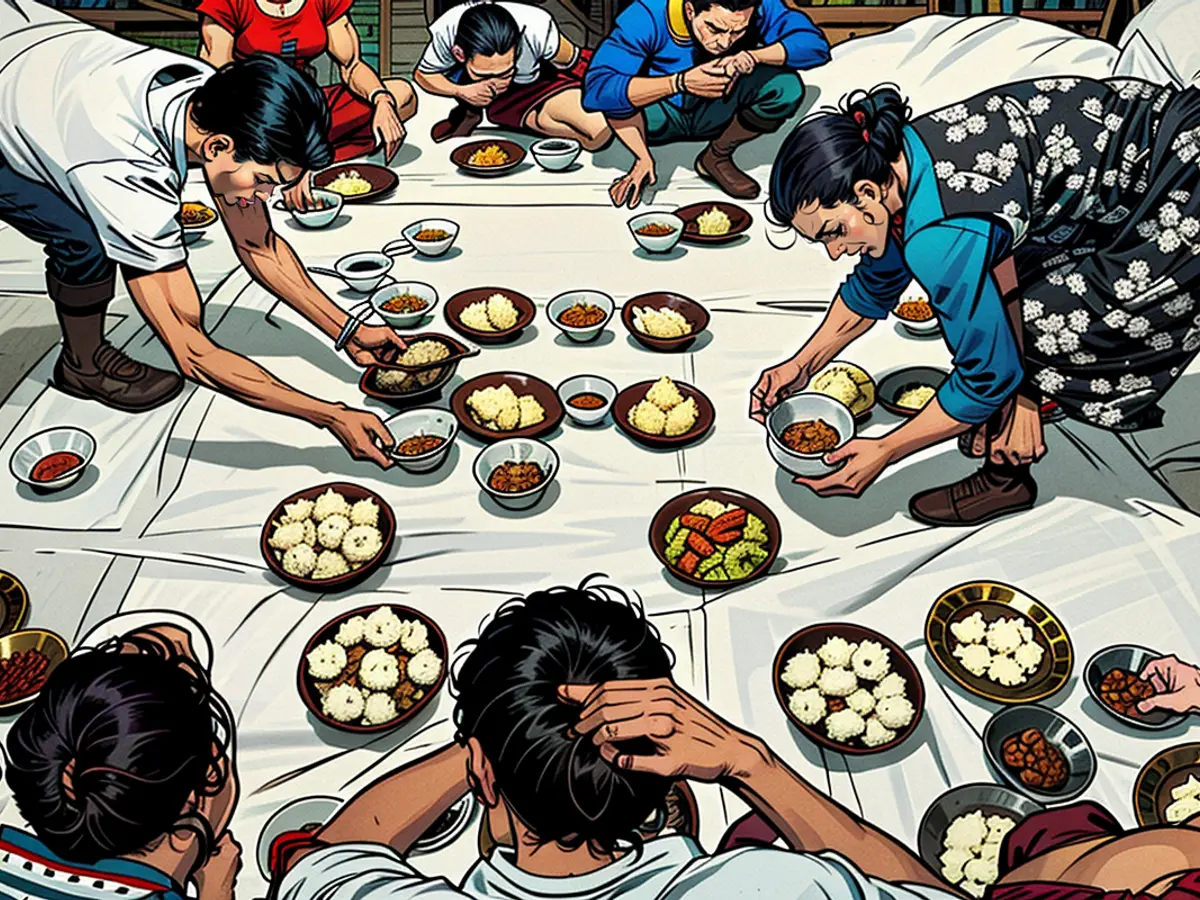Lesson in Mindfulness from the Festivity of Self-Denial
The three-day celebration of Eid-al-Adha, based on a story in the Quran, marks God's command to Abraham to sacrifice his son as an act of obedience. This holiday, starting on Sunday this year, is set by the lunar calendar and the dates are announced by Saudi Arabia.
The celebration centers around the angel of God stopping Abraham from sacrificing his son and providing a ram instead. The story also appears in Christian and Jewish scriptures.
To kick off the holiday, people usually greet Muslims with "Eid Mubarak" and attend a special morning prayer at the local mosque, followed by gathering with family to feast on a holiday meal and exchange gifts or money. Some may undertake a pilgrimage to Mecca – the holy sites in Islam – to commemorate where Abraham carried out his faithful act.
Muslims also honor Abraham's sacrifice by sacrificing a cow, sheep, or goat and sharing the meat with loved ones and those in need through udhiya or qurbani. Many also help feed disadvantaged people in Muslim countries.
These traditions remind us that letting go, having faith, and performing good deeds will be rewarded, according to Dr. Yasmine Saad, a clinical psychologist. The pious and social acts of Eid, such as celebrating with friends and family and exhibiting acts of charity, symbolize mindfulness and can be beneficial when incorporated regularly.
"Eid is a reminder that we should strive to add more of this balance in our daily lives," said Dr. Rania Awaad, clinical professor of psychiatry.
Here are some mindful practices inspired by the Eid holiday that can be included in your routine:
Stay optimistic and find the good
Although Abraham's sacrifice story is extreme, the lesson of persevering through tough times is relatable. Islam fosters a mindset of faithfulness and patience in the face of adversity.
"Islam really develops this notion of faithfulness and patience in the face of a trial," said Dr. Gabriel Reynolds, a professor of Islamic Studies and Theology at University of Notre Dame. In Islamic spirituality, this mindset becomes a "sustaining force" for Muslims. Anyone can adopt this mindset and reflect on their current circumstances to find positivity.
Do your part and trust the process
During Abraham's trying time, his wife was also tested. In the Islamic narrative, she was left alone in the desert with their son while Abraham followed God's command. The baby was in dire need of sustenance, so the mother searched for water between two hills seven times. Eventually, water – considered holy for Muslims – emerged from the ground where the baby's feet lay.
Although it seems like a miraculous event, when applied to daily life, one can view it as doing one's part and trusting that things will fall into place.
Feeding others nourishes the soul

Muslims mark the day by sacrificing an animal and then sharing the meal with their families and others in need. This tradition honors Abraham while emphasizing sharing and giving. At its core, the practice of qurbani is fostering a shared experience while serving others.
"A lot of people feel purposeless, and they feel that what they do in their life doesn't have an impact," Saad said. "Giving to others, giving to the needy, sharing, making a difference in other people's lives always feeds the soul."
Consider cooking for others, volunteering at a soup kitchen, and donating your money, time, or goods as an impactful and regular part of your routine.
Giving can "realign people, change their thoughts to more positive ones, make their bodies feel better, and give them a smile," Saad said. By stepping out of one's routine and giving to others, it can help people feel they have an impact, help others, and have significance.
This sense of purpose and meaning contributes to living a happier and longer life, according to an expert. In a broader sense, kindness contributes to one's sense of community and belonging, and donating to others has been proven to reduce blood pressure and improve heart health, according to studies.
People, being inherently social beings, find solitude and isolation detrimental to their mental, physical, and spiritual well-being, based on research. Even the extent of one's social connections can affect health, with limited networks correlating to higher feelings of isolation and loneliness, which can impact health and mortality rates. On the other hand, more positive social interactions are often associated with improved coping mechanisms and reduced stress levels.
The extended celebrations during Eid offer ample opportunities for socializing and bonding, making it beneficial, according to Dr. David Spiegel, a psychiatrist and director of the Center on Stress and Health at Stanford Medicine. He explains that humans have evolved communities to help each other, protect each other, and manage stress more effectively.
Engaging with one's community or expanding one's social network, even in smaller ways like spending quality time with friends, can contribute positively to one's health.
Refill your spirit
While some Muslims find spiritual fulfillment through the Hajj pilgrimage, not everyone may be able to embark on such a journey. However, creating spaces that bring fulfillment can infuse fresh, invigorating energy.
This could be anything from reading an engrossing book to attending a yoga retreat or even going for a hike, according to Awaad. Such activities can help individuals grow and find gratification, inspiring them to be more mindful and engaged with the people around them and their work.
As Awaad puts it, "It could be something that replenishes your energy, enabling you to then focus and be more attentive to those in your circle and your responsibilities."

Read also:
During the celebration of Eid-al-Adha, Muslims often practice the tradition of sacrificing an animal and sharing the meat with loved ones and those in need. This act is known as udhiya or qurbani.
To find positivity in challenging circumstances, as demonstrated by Abraham's story, one can adopt the Islamic mindset of faithfulness and patience, viewing their trials as opportunities to grow and persevere.








